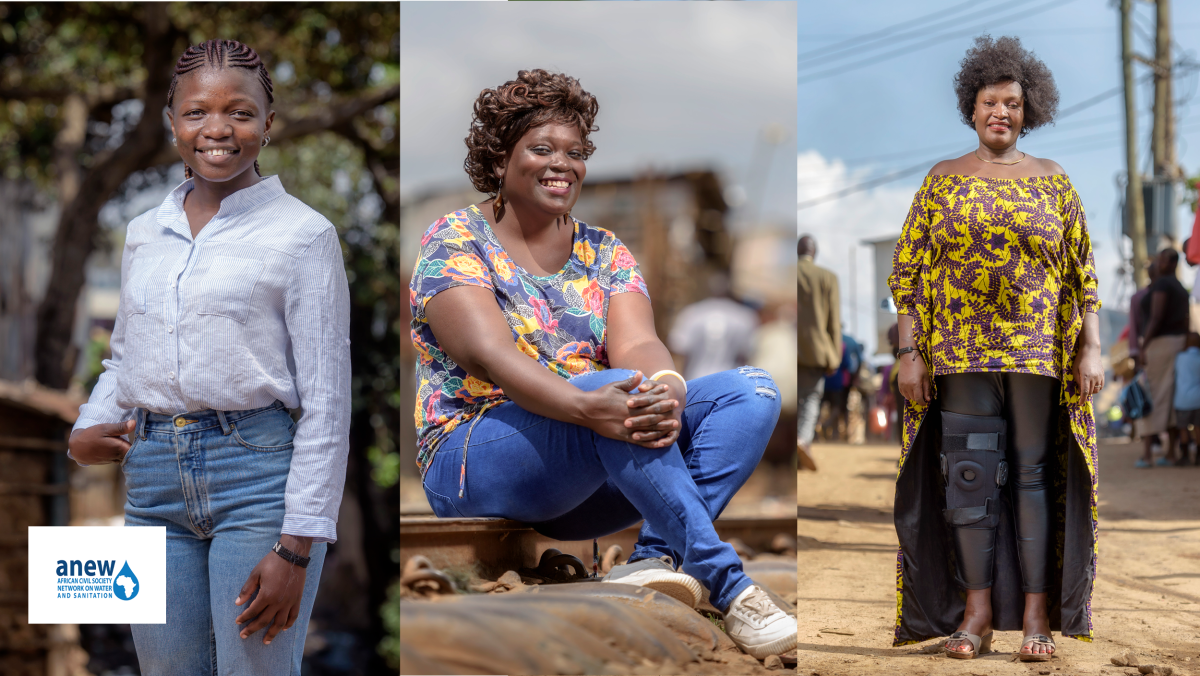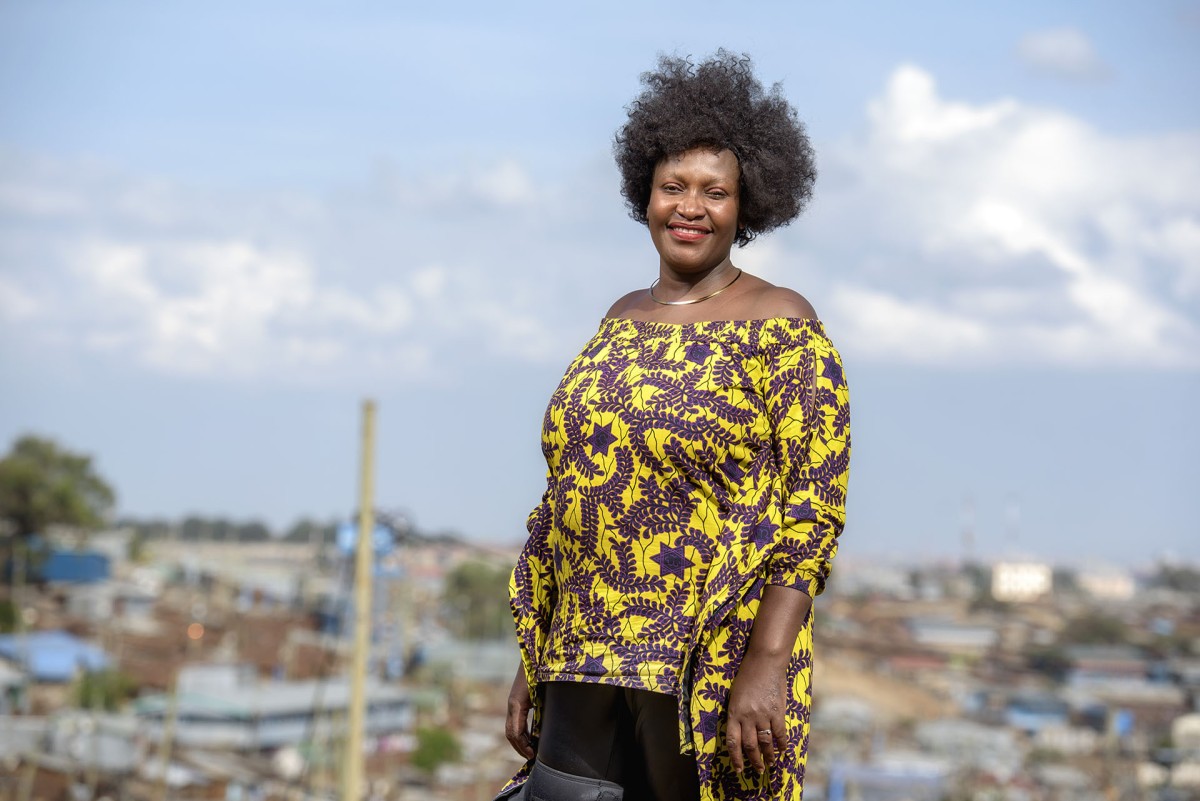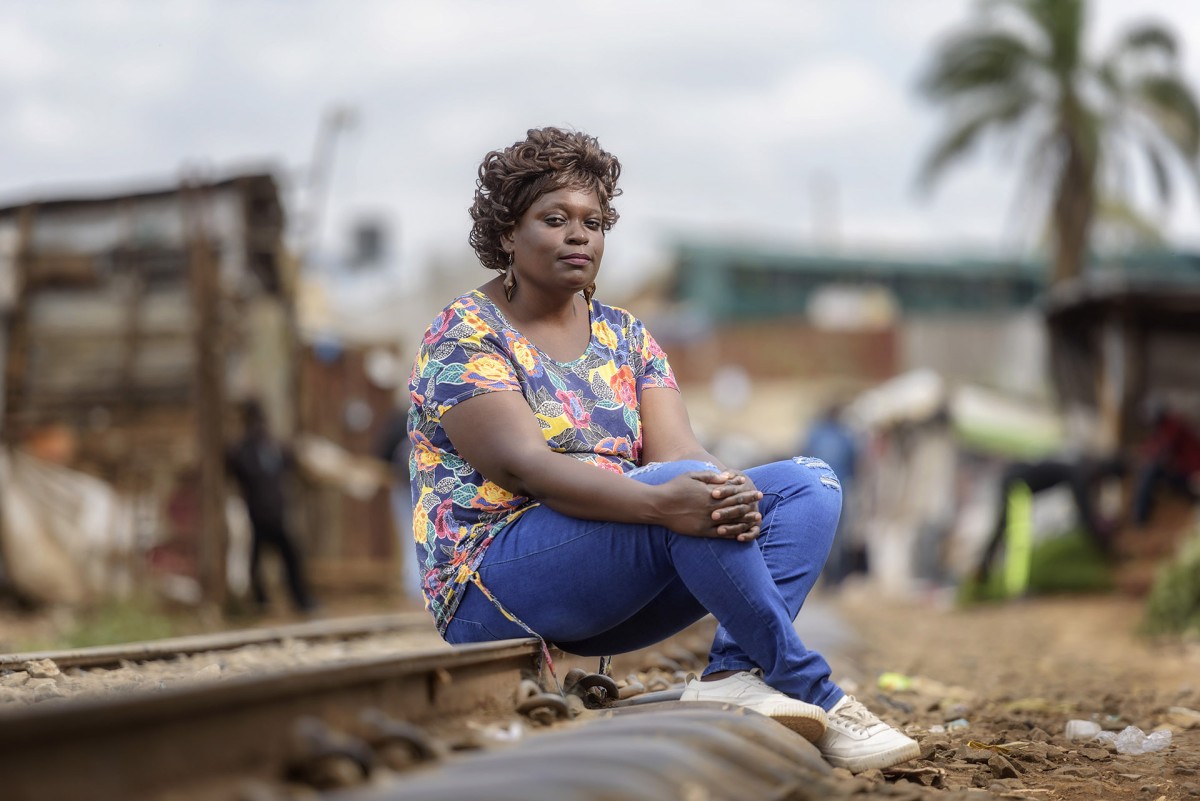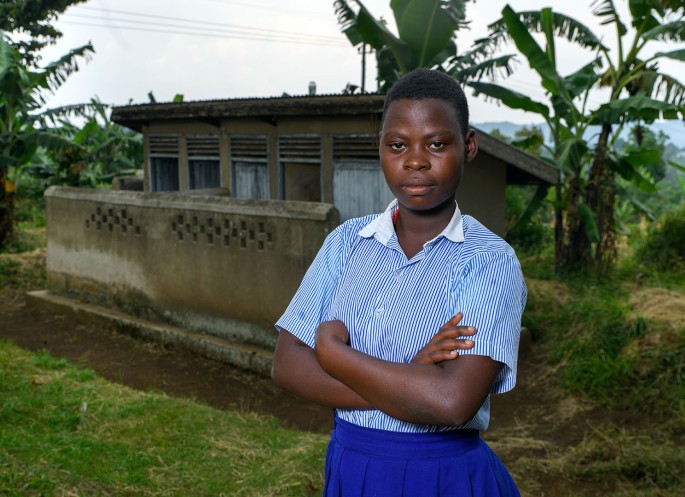16 Days of Activism: women and girls stand together and speak out to stop violence and harassment
Lack of access to safe drinking water, sanitation, and hygiene (WASH) disproportionately affects women and girls.
Warning this article contains content on (sexual) violence

Why the lack of access to WASH disproportionately affects women and girls
They are often responsible for fetching water and since this is time consuming, it prevents them from gaining an education, earning a formal wage and therefore puts gender equality under pressure.
Next to that, girls experience sexual harassment, coercion and violence when they are collecting water due to the long distances they have to walk. Or it occurs when they have to wait for hours in long queues facing power inequality by the men managing the water points. All because there simply is not enough or no access to water or a safe toilet.
Fact:
Globally, 1 in 3 women experience physical and/or sexual violence in their lifetime, mostly by an intimate partner
1 in 4 people lack safely managed drinking water
In 8 of 10 households women and girls are responsible for collecting water with water off premises
Their stories, their rights
Sex for water is increasingly becoming an everyday practice in settlements like Kibera in Kenya. Water is a human right which every girl should be able to access without violence and harassment. That’s why Simavi is participating in the international campaign of 16 Days of Activism against Gender-Based Violence that starts on 25th of November.
By sharing the stories of bold and powerful women that stand together, rise up and speak out to stop (sexual) violence and harassment. Nancy, Cecilia and Esther tell their stories of how lack of access to water and toilets puts women and girls in unsafe situations and how they speak out against these problems on a political and local level.

Nancy Barasa educates girls on their rights
‘Many girls from Kibera feel unsafe when collecting water’, comments Nancy Barasa (21). ‘To take an example, they’re sexually harassed. Boys strike their buttocks as they’re lifting one of their 20-litre jerrycans. Some girls even feel compelled to have sex in exchange for water.’ Nancy herself is also regularly sexually harassed.
The tap only opens for "acquaintances"
According to Nancy, many of the guys who operate the waterpoints and collect money abuse their position of power. ‘For instance, they’ll only open the tap for girls they know or for girls who’ve already done them certain favours’, explains the young woman.
‘Because of this, you might stand in line for a whole day, but, at the end of the day, you still don't have any water. And then, it can be the same old song the very next day. Eventually, you start to think about becoming "friends" with guys like this at the waterpoints.’
Coming home without water, as Nancy points out, is simply not an option. ‘Your mother will immediately send you back out of the house to look for water somewhere else, even in the evening. This leaves us especially vulnerable. Girls end up engaging in extreme behaviour, like having sex for water.’ Fortunately, Nancy has never had sex for water.
Unsafe conditions near toilets and showers
The unsafe conditions near toilets and showers is another big problem, remarks Nancy. Most of Kibera’s iron-corrugated houses are not equipped with a toilet or shower, forcing girls to use public pay-per-use toilets and showers.
Nancy reports that girls are regularly sexually harassed at these toilets by the boys collecting payment for the toilet and shower facilities. ‘When I go to the [public] toilets, the toilet attendant’s friends often ask for my number. If I refuse to give it, the toilet attendant will not let me use the facilities the next time. All while there are very few public toilets in Kibera.’
Breaking the taboo and educating girls about their rights
Nancy decided to try to change this situation and to work toward better access to water. ‘Access to water is a human right’, proclaims Nancy. ‘And water is especially important for girls. They need it for showering and cooking, but also to wash themselves while menstruating. Therefore, they should never be subjected to this kind of issue.’
Nancy educates girls about their rights and explains how having sex for water is not just a bad idea, it’s also very risky. ‘You can even contract diseases like HIV from it.’ She also advocates on social media, such as Twitter and Facebook, for lawmakers to criminalise practices like 'sex for water' and to improve access to water and to safe toilet and shower facilities.
As Nancy points out, ‘I’m very proud of having trained more than two thousand girls about the dangers and risks of sex for water. Before, this was a topic no one dared to talk about. But now, thanks to this kind of training, it’s no longer taboo. What’s more, the girls I’ve trained can now begin educating other girls themselves’.
**UPDATED FEBRUARY 2023, one year after the interview**
Nancy still lives in Kibera with her family and continues to work daily for the rights of women and girls. She recently started working as an assistant program officer at the Zamara Foundation in Nairobi: a feminist organization committed to bodily autonomy and integrity and intersectional feminist transformational leadership for young women.
'Access to water is a human right'
Cecilia Achieng Ayot combats violence against girls and women as a local politician
Nowadays, Cecilia Achieng Ayot, combats violence against girls and women as a local politician. The 44 year old was born and raised in the Kenyan slum of Kibera.
When she was a young girl, her sister was raped and infected with HIV when fetching water, tells Cecilia: ’When I was 7 years old, my sister and I often had to walk more than three kilometres to fetch water,’ says, emphasising that the situation in Kibera has not improved since then.‘Almost all water points are in the hands of cartels who determine the water prices,’ explains this local female elected representative. ‘This makes water close to home too expensive for most families, including ours, so girls are sent by their mothers further away to find cheaper water,’ the politician continues.

Sex for water was a serious taboo
Many young women and girls are persuaded to exchange sex for water. ‘Since Kibera is an informal settlement, the water supply is not regulated by the government, but by private groups that are primarily interested in earning money and who try to sexually exploit young girls and women,’ says the representative, who has been concerned about this problem for years.
‘These girls are completely uninterested in having sex with these men, but are desperate. They see no other option,’ stresses Cecilia. ‘It is an appalling humiliation for these young women, who are only trying to have access to a fundamental human right: water.’For years, the sex for water problem was a serious taboo that no one talked about. ‘Kibera is a place of extreme lawlessness,’ explains Cecilia. ‘When parents report the rape of one of their daughters to the police, the police usually do not do anything about it. The family then returns home and must live with the consequences, with the offenders often living right around the corner and able to easily inflict harm.’
Slums also deserve government services
Cecilia is currently advocating efforts to changing this situation: ‘I finally have a seat at the decision-making table, but have discovered that there is still little I can do because essentially no government services are offered in the slums.’
The politician fears that patience and perseverance are needed to get the government to understand that people who live in slums are also taxpayers who deserve access to government services. ‘In the meantime, I hope that society and international organisations can continue to offer assistance and solutions, while we try to force the government to make changes.’
'I hope that society and international organisations can continue to offer assistance and solutions, while we try to force the government to make changes.’
Esther Musavi fights for better access to WASH and against violence towards women and girls
Some girls in Kenya's Kibera slum see no other option than to have sex in return for water, says Esther Musavi (38), who fights for better access to water, safe toilets and showers and against violence against girls and women. 'The severe lack of water, safe toilets and showers in Kibera leads to a lot of violence against girls and young women.'

Sexually harassed on the way to the water point
The activist says that due to the water shortage, girls often go out to fetch water at night. 'They hope to get to the front of the queue for water the next morning, before it runs out,' Esther says. 'But on the way to these water points, girls are regularly sexually assaulted or raped.'
The queues that girls and women often have to wait in for hours on end give the boys manning the water points an unhealthy sense of power. 'The boys ask the girls to have sex with them in return for water, for example if the girls do not have enough money. Girls can also come to the start of the queue in return for sex, so that they can get water before it runs out,' says the activist, who has interviewed dozens of girls in order to expose the sex for water problem.Teaching the community about girls’ rights
'Many girls do not dare to say anything about sexual harassment because it means they will be forbidden from using the toilets and showers, which are very scarce in Kibera. Cases of sexual assault and rape are often brushed under the carpet when parents try to take them to the local chief or police,' says the activist.
Esther now teaches her community about girls' rights and the harm that these practices cause. 'We teach girls to say no to 'sex for water'. At the same time, there needs to be better access to water – otherwise, girls will continue to have a hard time saying 'no'.' The activist is also pushing for more, safer toilets and showers in Kibera. 'Sex in return for water is a human rights violation. Girls and women should have free access to basic needs like water.'Taking the problem seriously and saying 'no'
'I am proud that, thanks to our research, the local government is finally taking the sex for water problem seriously. I believe that if girls and women get better access to water, we can stop these sex for water practices. If there are no more queues for a water point, girls can simply say 'no' to sex and go to a different water point.'
'I believe that if girls and women get better access to water, we can stop these sex for water practices.'
Simavi and ANEW are standing up for change
The stories of these brave women show us that change is needed to stop violence against women. Women and girls should be able to enjoy their human right to water and sanitation free from coercion and violence.
That’s why Simavi and ANEW advocate that water and sanitation services must be designed in ways that protect the safety of women and girls and prevent violence and harassment. Involving women in design, implementation and management of WASH services is critical to create the change that is needed to stop violence against women in these communities.
This article is in collaboration with ANEW



